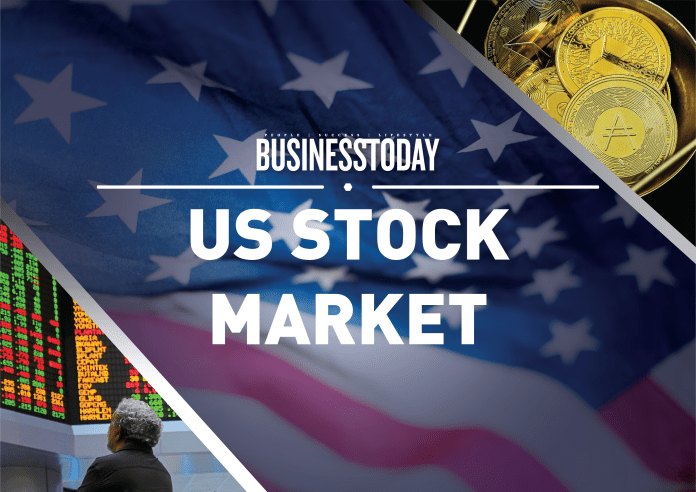Technology, stocks fell while pharmaceutical, shipping and energy counters posted sharp to moderate gains
U.S. stocks closed lower on Monday, extending recent losses, as worries about interest rate hikes and slowing growth continued to weigh on sentiment.
Technology stocks fell on Biden administration’s decision to impose export controls on China. Washington published a set of export controls that limit companies selling advanced computing semiconductors and manufacturing equipment to China.
The major averages all ended in negative territory. The Dow, which plunged nearly 300 points early on in the session, ended with a loss of 93.91 points or 0.32 percent at 29,202.88. The S&P 500 settled at 3,612.39, losing 27.27 points or 0.75 percent, while the Nasdaq, which dropped to 10,449.04, ended with a loss of 110.30 points or 1.04 percent at 10,542.10, the lowest close in over 2 years.
Shares of Qualcomm Inc. fell more than 5 percent. Nvidia ended lower by about 4 percent, and Advanced Micro Devices shed about 1 percent. Micron Technology Inc. shares drifted down 2.89 percent.
Microsoft and Intel both shed more than 2 percent. Salesforce.com, Walt Disney and Chevron also ended sharply lower.
Walgreens Boots Alliance gained nearly 5 percent. Merck climbed 3.3 percent. Boeing, Amgen, 3M, McDonalds and Caterpillar posted sharp to moderate gains.
Data from the Labor Department last week added to interest rate concerns. The report showed non-farm payroll employment jumped by 263,000 jobs in September after surging by an unrevised 315,000 jobs in August and spiking by an upwardly revised 537,000 jobs in July. Economists had expected employment to leap by 250,000 jobs.
The slightly stronger than expected job growth reflected notable increases in employment in the leisure and hospitality and healthcare sectors, which added 83,000 jobs and 75,400 jobs, respectively.
Economists noted the job growth was even stronger excluding a drop in state and local government education payrolls, which reflected shifting seasonal patterns in teacher hiring.
The Labour Department also said the unemployment rate dipped to 3.5 percent in September from 3.7 percent in August, while economists expected the unemployment rate to come in unchanged.
U.S. inflation data, minutes from the Fed’s September meeting and reports on retail sales and consumer sentiment due this week will provide more insights into policymakers’ view of where inflation stands and the outlook for the future path of interest rates.
The Bank of England sought to ease concerns about this week’s expiry of its program designed to calm turmoil in the government bond market, announcing new safety-net measures including a doubling of the maximum size of its debt buybacks. read more read more
Even though U.S. bond markets were closed on Monday, Matthew Miskin, co-chief investment strategist of John Hancock investment management based in Boston, said the UK news was not helping the U.S. stock market.
“It looks like an ongoing spillover from the bond market into the equity market continues this week,” said Miskin, adding to expectations for a high inflation reading later this week.
Investors are betting “the Fed’s not going to be able to back down until inflation comes down,” he said.
Oil prices sank by nearly 2%, after five straight sessions of gains, as investors feared economic storm clouds could foreshadow a global recession and erode fuel demand. read more
U.S. crude fell $1.51 to $91.13 per barrel while Brent settled at $96.19, down $1.73.
Gold prices fell as an elevated dollar and solidifying bets for an aggressive Fed interest rate hike pushed the non-yielding bullion to its lowest level in a week.
Spot gold dropped 1.5% to $1,669.28 an ounce. U.S. gold futures fell 1.89% to $1,668.40 an ounce.
In overseas trading, Asian stocks fell on Monday as better-than-expected U.S. jobs data released on Friday cemented bets of more large Federal Reserve rate hikes.
Weak Chinese services sector data, and signs of fresh COVID outbreaks in China also weighed on markets.
Lingering worries surrounding the Russia-Ukraine war and the U.S.-China chip war also dented sentiment.
The major European stocks closed on a weak note on Monday as geopolitical tensions, concerns about rising interest rates and their likely impact on global economic growth continued to weigh on sentiment, prompting investors to stay cautious about the near-term outlook for the markets.









